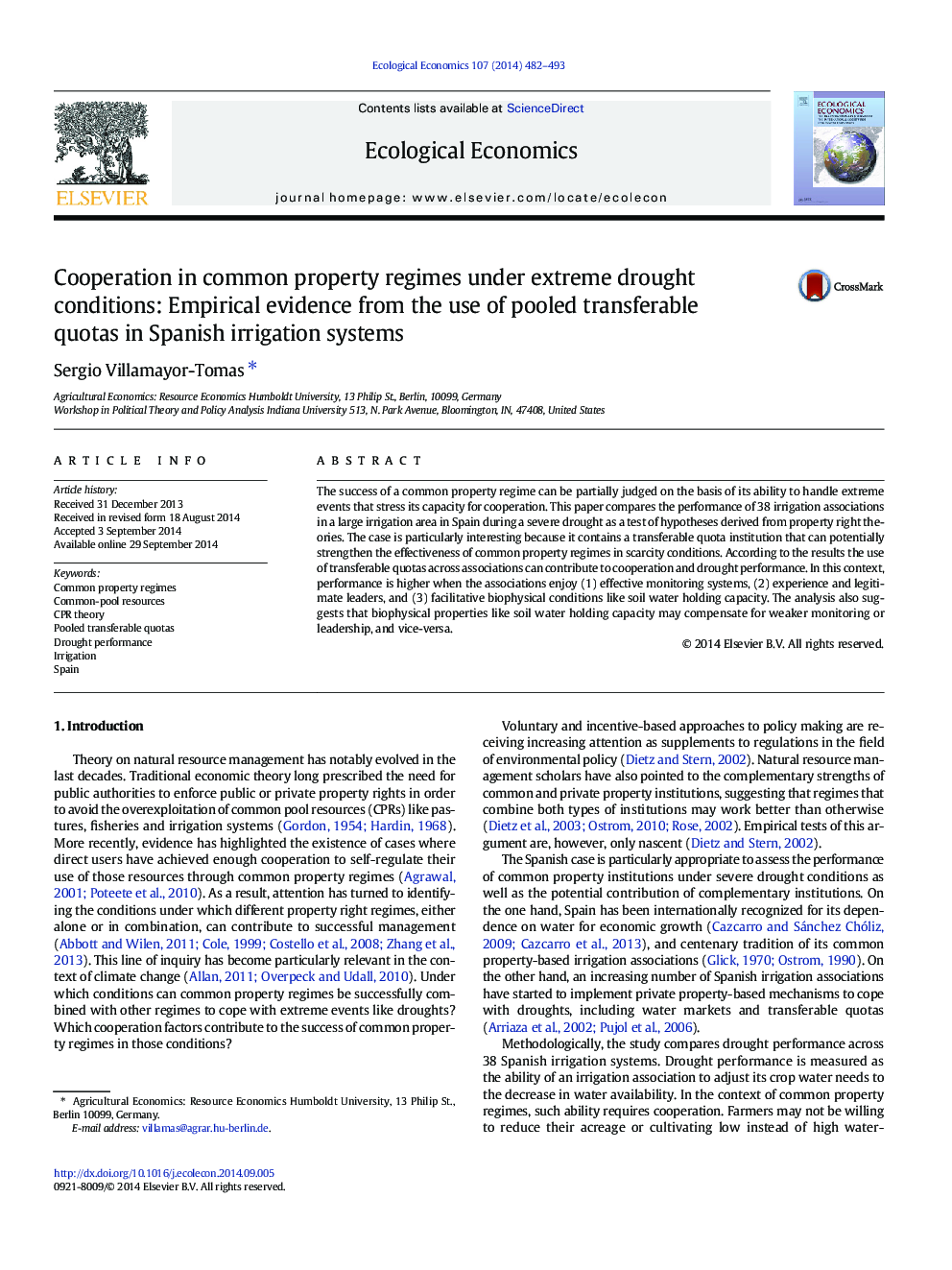| Article ID | Journal | Published Year | Pages | File Type |
|---|---|---|---|---|
| 5049539 | Ecological Economics | 2014 | 12 Pages |
The success of a common property regime can be partially judged on the basis of its ability to handle extreme events that stress its capacity for cooperation. This paper compares the performance of 38 irrigation associations in a large irrigation area in Spain during a severe drought as a test of hypotheses derived from property right theories. The case is particularly interesting because it contains a transferable quota institution that can potentially strengthen the effectiveness of common property regimes in scarcity conditions. According to the results the use of transferable quotas across associations can contribute to cooperation and drought performance. In this context, performance is higher when the associations enjoy (1) effective monitoring systems, (2) experience and legitimate leaders, and (3) facilitative biophysical conditions like soil water holding capacity. The analysis also suggests that biophysical properties like soil water holding capacity may compensate for weaker monitoring or leadership, and vice-versa.
